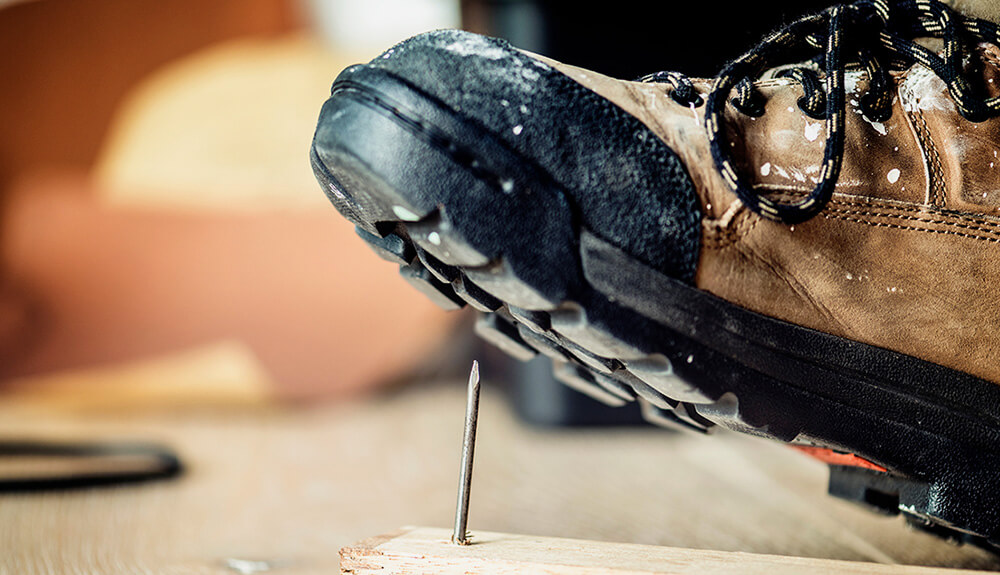EN ISO 20344 Protective Footwear Fuel Resistance Testing
The EN ISO 20344 standard sets out detailed specifications and test methods to evaluate the resistance of protective footwear against fuel penetration. This service is crucial for industries where workers are exposed to flammable liquids or other hazardous substances, ensuring their feet are safeguarded from potential chemical burns and injuries.
The testing procedure involves exposing a sample of protective footwear to various types of fuels under controlled conditions. The primary objective is to determine the maximum thickness of fuel that can penetrate into the footwear within a specified time frame. This not only ensures compliance with regulatory requirements but also helps manufacturers improve their product design and performance.
Footwear tested under this standard includes safety boots, work shoes, and other protective footgear intended for environments where flammable materials are present. The test is conducted using different fuel types such as gasoline, diesel, kerosene, and others specified in the standard. Each fuel type has its own unique properties which require specific handling to ensure accurate testing.
The testing process typically involves several steps including specimen preparation, application of the fuel, observation period, and evaluation criteria. Specimen preparation ensures that each pair of footwear tested is consistent with industry standards before undergoing the test procedure. During the application phase, precise amounts of fuel are applied to the footwear according to predefined conditions.
Observation periods allow for monitoring any signs of fuel penetration into the footwear material over time. Evaluation criteria focus on measuring the maximum thickness of fuel that penetrates through the outer layer without affecting the inner structure or protective properties of the footwear. Compliance with these standards ensures worker safety and meets regulatory requirements in various industries like oil & gas, chemical processing, petrochemicals, and construction.
For accurate and reliable testing results, it is essential to use appropriate equipment and follow standardized procedures outlined in EN ISO 20344. Proper calibration of the test apparatus ensures consistent performance throughout all tests conducted. In addition to mechanical equipment, specialized fixtures may be required depending on the type of footwear being tested.
The importance of this service cannot be overstated given the critical role it plays in protecting workers from hazardous conditions. By adhering strictly to EN ISO 20344 guidelines during testing, manufacturers can ensure their products meet stringent safety standards and provide effective protection against fuel penetration. This not only enhances worker safety but also contributes positively towards maintaining a safer working environment across various sectors.
At Eurolab, we pride ourselves on delivering high-quality services that exceed expectations. Our experienced team specializes in conducting EN ISO 20344 protective footwear fuel resistance tests using state-of-the-art facilities and equipment. We employ rigorous quality control measures to ensure accurate results every time while maintaining strict adherence to international standards.
Eurolab Advantages
We understand the importance of reliable testing services in ensuring worker safety and compliance with industry regulations. At Eurolab, our expertise lies in providing comprehensive solutions tailored specifically for your organization’s needs. Here are some key advantages that make us stand out:
- State-of-the-art laboratories equipped with advanced instrumentation for precise measurements.
- A dedicated team of highly qualified technicians who possess extensive experience in conducting various types of protective equipment tests.
- Strict adherence to international standards such as EN ISO 20344, ensuring accurate and consistent results.
- Comprehensive reporting capabilities that provide detailed insights into test outcomes along with recommendations for improvement if necessary.
- A commitment to maintaining the highest level of quality in all our services through continuous training and upskilling.
Choose Eurolab for your EN ISO 20344 protective footwear fuel resistance testing needs, knowing that you are partnering with a reputable provider committed to excellence.
Customer Impact and Satisfaction
By choosing Eurolab for your EN ISO 20344 protective footwear fuel resistance testing services, you can expect significant positive impacts on both operational efficiency and employee safety. Our customers have consistently reported enhanced confidence in their products' ability to protect workers from hazardous environments.
We prioritize customer satisfaction by offering personalized service plans that cater specifically to each client's unique requirements. Whether it's regular batch testing or one-off assessments, we ensure timely delivery of accurate results so you can make informed decisions about your product development processes.
Our focus on quality and precision has earned us a reputation for reliability among leading companies across different sectors. By partnering with Eurolab, organizations gain access to cutting-edge technology supported by experienced professionals dedicated to delivering top-notch testing services.
Use Cases and Application Examples
| Industry | Application Example | Purpose of Test |
|---|---|---|
| Oil & Gas | Testing protective footwear for workers in offshore drilling operations. | Evaluating fuel resistance to prevent accidents during handling and storage of flammable liquids. |
| Petrochemicals | Assessing the durability of safety boots used by employees working with hazardous chemicals. | Determining whether footwear can withstand prolonged exposure to different types of fuels without compromising protective features. |
| Chemical Processing | Conducting tests on work shoes worn by personnel involved in manufacturing processes involving flammable substances. | Ensuring compliance with safety regulations while also identifying areas for product improvement based on real-world usage scenarios. |
| Construction | Performing evaluations of protective footwear utilized during demolition activities where sparks and fuel leaks are common occurrences. | Maintaining worker safety by verifying that selected footwear provides adequate protection against fuel penetration even in challenging work conditions. |





